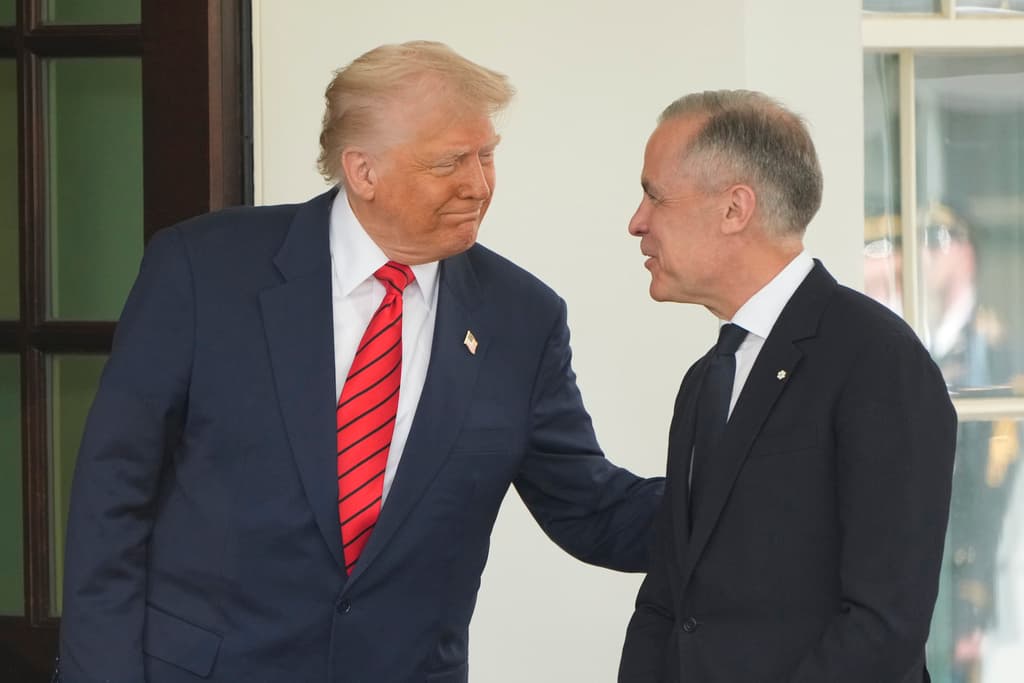Despite Reagan Tariff Commercial, Unwise for America To Blunder Into Quarrel With Canada, Its Closest, Most Cordial Ally
It is not in the best interests of America to seek a weakened Canada nor would it ultimately be successful.

The latest round in the very syncopated Canadian-American tariff disagreements and discussions has more the air of oversized children in a sandbox hurling mud balls at each other than statesmen of governments of serious countries attempting to resolve a disagreement. In Canada, the second ring level of jurisdiction between the federal government and municipal governments are called provinces and under the Canadian Constitution, provinces have rather greater powers than American states, including a concurrent jurisdiction in direct personal and corporate income taxes.
The provinces have primary authority over property and civil rights, but they have no direct role in foreign affairs and trade relations outside their specific designated responsibilities. It was accordingly a bold and inadequately considered initiative for the government of Canada’s largest province, Ontario, to launch an imaginative but rather confrontational advertising campaign in the United States attacking tariffs and quoting from a 1987 speech of President Reagan attacking tariffs.
The implication was that the government of Ontario was attempting to stampede American public opinion out from under President Trump and away from an aggressive tariff policy with Canada, and even trying to influence the Supreme Court against Trump’s ability to impose tariffs. Ontario has about 16 million people out of a total Canadian population of about 42 million, compared to about 13 million in Pennsylvania and 12 million in Illinois. The Greater Toronto Area in Ontario has a population approximately equivalent to Metropolitan Chicago: about ten million.
The premier of Ontario, the equivalent of the governor of an American state, is naturally concerned about Mr. Trump’s frequent claims to be about to destroy the Canadian automobile and steel industries. The three-term premier of Ontario, Doug Ford, is a populist conservative who has professed great and unwavering admiration for Mr. Trump until as president-elect, Mr. Trump announced that he was fastening a 25 percent tariff increase on Canada and Mexico.
In doing this Mr. Trump insinuated that there was an equivalence of behavior towards the United States of the two countries. This is outrageous given that Canada is a fair trading country and has adhered to its obligations, where Mexico has enticed American manufacturing into Mexico where it has benefited from factory construction subsidies, tax holidays, and cheap Mexican labor to exploit the international agreement and reintroduce product into the United States, all while partnering with the Mexican human trafficking gangs and other sponsors of the illegal invasion of the United States by from 12 million to 15 million destitute people including more than 500,000 violent criminals, in the last five years.
Mr. Trump has a number of times indicated that he thinks that the Canadian automobile and steel industries are redundant to international economic need and are extremely vulnerable. This has raised understandable unease and annoyance in Canada, especially when the president has indicated his ability and intention to bring about this rather draconian economic result. He is not, indeed, capable of doing that, though he could certainly give the Canadian automobile and steel industries a difficult time. It is not in the best interests of America to seek a weakened Canada, nor would it ultimately be successful.
Canada is a treasure house of natural resources containing almost all base and precious metals, forest products, agriculture, and energy in great abundance and while the American market is extremely convenient, and trade with the United States represents almost 40 percent of Canadian gross domestic product, the United States could ultimately be replaced as a supplier of almost anything. As Canada has the ninth-largest GDP in the world, it would certainly have to respond to such an aggressive American posture by practically eliminating all imports from the United States and taking active measures to discourage Canadian tourism in the United States. The overall longer-term result of this would be beneficial to Canada as it would remove its imperishable preoccupation with the American relationship, though doing so would undoubtedly lead to significant inconvenience for some years.
By Reagan’s time, America’s overall trade deficit had swollen to completely unacceptable proportions and the United States has been taken advantage of by many countries. Yet Canada is not one of them and Mr. Trump’s response to Canada has been unreasonable, as has been noted in the international community, and if necessary, will be responded to in ways that will be painful to many Americans. Canada is not a defenseless and irresolute country.
Mr. Ford had no business taking up such an advertising campaign with the implicit intent of trying to drive the president’s own countrymen from under him. Yet Mr. Trump’s response to suspend tariff negotiations, when those negotiations are with the government of Canada and not Ontario, has appeared a bit churlish. No prime minister of Canada would take such a heavy-handed step as Mr. Trump’s in response to any episode of mere cheek from the governor of an American state.
The offensive advertising campaign has already been suspended and the sooner the trade specialists of both countries work out whatever changes need to be made to their existing agreements, the better. The United States should not blunder into an ill-starred effort to humiliate its closest and most cordial ally. Canada has not been an overly assertive country but nor has it ever been subdued by an outsider, including the United States on two occasions. Both countries have the right to expect constructive maturity in their reciprocal relations but neither has shown it in the last week.

